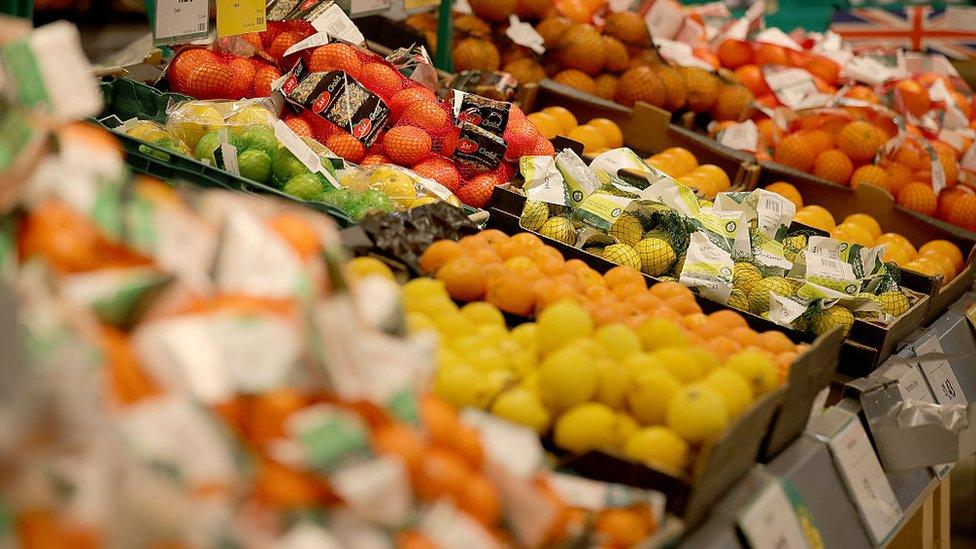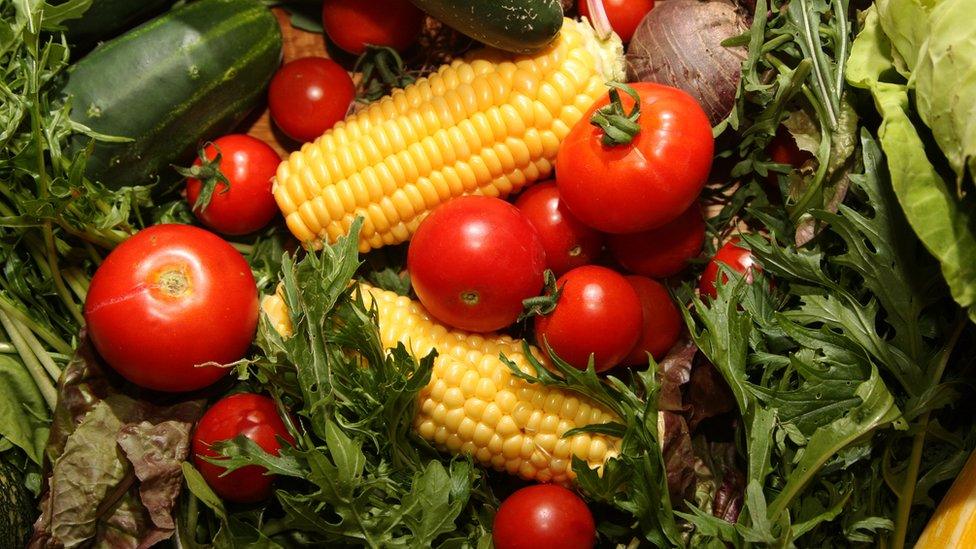Salmon sales surge as UK food exports hit record high
- Published

Sales of British salmon helped the UK to export a record value of food and drink in the first half of the year, according to industry figures.
Exports of the fish jumped more than 53% by value to £408m, the Food and Drink Federation (FDF) said.
UK food and drink exports rose 8.5% to £10.2bn, helped by the fall in the pound after last year's Brexit vote.
But the FDF warned that without a favourable Brexit trade deal, British exports could become less competitive.
High spirits?
Whisky remained the top export, while salmon was second, and beer rose to third, overtaking chocolate.
But while the volume of salmon exports rose by 24%, whisky exports actually fell 1% by volume, and beer exports fell 2.2%.
The pound has fallen sharply against the dollar and euro since the UK voted to leave the EU in June last year, giving a boost to UK exports, as they have become relatively cheaper.
However, the weaker pound has also pushed up costs for British businesses that bring in food and raw materials from abroad, the FDF said.
It said the UK's food and drink trade deficit - the difference between how much the UK imports and exports - widened 16% to £12.4bn over the period.

Salmon sales 'higher than ever'

Andy Bing of Loch Duart Salmon says the firm has seen record sales this year
British salmon is becoming more popular globally, according to Andy Bing, sales director of Loch Duart Salmon in North West Scotland.
"This half we've sold more than we ever have," he said, adding that the firm's main export markets were France, the US, Italy, and Switzerland.
UK salmon exports have grown after Chilean producers suffered problems in 2015 with algal blooms that killed a large amount of their fish, he said.
Looking ahead, the firm is optimistic about the eventual post-Brexit trade deals that can be struck with EU countries.
"Europe needs lovely Scottish salmon just as we need lovely French wine and wonderful German cars," he said.
However, he added that Loch Duart was "finding it difficult to plan without better guidance" from the government about Brexit.

The two biggest importers of UK food and drink are Ireland and France.
If there is no deal and World Trade Organization (WTO) tariffs with the EU are brought in, "food and drink would face significantly higher tariffs than most other products," an FDF spokesman said.
For example, some fruit and vegetables would face tariffs of 157%, and for some drinks products, importers would have to pay 152% tariffs.
Goods "could face lengthy delays at border for checks and inspections that would add delays and cost to products, particularly those with short shelf lives," the spokesman added.
However, the free market think tank, the Institute for Economic Affairs, said it would not be a "disaster" if the UK failed to strike a deal with the EU.
Jamie Whyte, IEA research director, said: "In fact, we could unilaterally eliminate all import tariffs, which would give us most of the benefits of trade and export to the EU under the umbrella of the WTO rules."
A UK government spokesman said it wanted to reach a deal with the EU "allowing for the most frictionless trade including in food and drink as possible".

UK's top 10 food and drink exports
Whisky
Salmon
Beer
Chocolate
Cheese
Wine
Gin
Beef
Pork
Soft drinks
Source HM Customs and Excise

In the first half of the year, UK food and drink exports rose faster to EU countries, up 9%, than to countries outside the EU, with growth of 7.6%.
But the market which saw the most growth in the first half was South Korea, up 77%, in the main due to beer exports.
Food Minister George Eustice said: "We have ambitious plans to produce and export more of our fabulous foods around the world and more businesses are trying exporting for the first time.
"Last week we announced further market access to China for pork producers and UK beef will soon be heading to the Philippines. We will continue to work with industry to open new opportunities."
- Published27 March 2017

- Published22 February 2017
